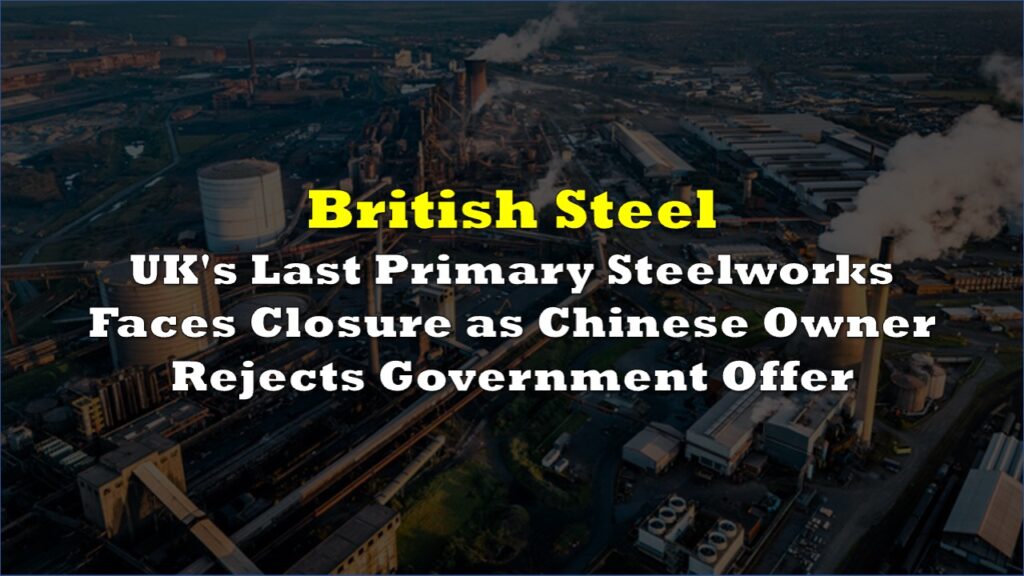British Steel has refuted claims of impending job losses at its Scunthorpe plant, countering reports from national media that suggested accelerated closures and job cuts. The steel manufacturer acknowledged ongoing production issues but emphasized that no decision has been made regarding the closure date of its blast furnaces.
According to an unnamed source cited by The Independent in a report from last week, the plant may cease importing coke and coal in October, leading to a permanent shutdown of the blast furnaces, which would then lead to cutting 2,500 jobs before Christmas.
A spokesperson for British Steel said, “Imports of raw materials are continuing but have reduced in light of ongoing production issues. We are working to restore production levels from our ageing blast furnaces.”
The uncertainty stems from British Steel’s £1.25bn decarbonisation plan, announced in November 2023. Under this plan, the company’s Chinese owners, Jingye, proposed closing the plant’s two blast furnaces and replacing them with a greener electric arc furnace. At the time of the announcement, trade unions estimated that this transition could result in 2,000 redundancies in steel and ironmaking.
The Far-Reaching Impact of Blast Furnace Closures
This transition, however, raises significant concerns about the UK’s industrial capabilities. The closure of blast furnaces across the country, including those at Scunthorpe, would mark a pivotal shift in Britain’s steel production landscape. Blast furnaces are capable of creating steel from iron ore, while electric arc furnaces primarily process existing steel, essentially recycling scrap metal.
The potential loss of blast furnace capacity could severely impact the UK’s ability to produce steel from raw materials, potentially compromising the country’s self-sufficiency in critical industrial and defense applications. Industries requiring high-grade steel, such as defense, aerospace, and high-tech engineering, often need steel of precise and pure composition, which is challenging to achieve consistently with recycled steel from electric arc furnaces.
There are basically two ways to make steel, using a blast furnace to make it from ore, or an electric arc furnace which in terms of the ones we have can only process existing steel (i.e recycle it). Britain closed its last blast furnace this year. So we cannot now in fact… https://t.co/tKuWQYykiK
— Calum E. Douglas (@CalumDouglas1) August 24, 2024
Council leader Rob Waltham emphasized the critical nature of the steel industry, describing it as “the backbone of our local economy and essential to our national security.” He plans to lead a small delegation to China in September to meet with British Steel’s owners.
Waltham added, “Whatever the plans are going forward, we have to protect the sovereign capability for blast furnace steel and create a new future for steelmaking at the same time. Using taxpayers’ money to lose jobs is not acceptable.”
The council has previously pledged to develop 300 acres at the site to create new employment opportunities in the green energy and engineering sectors, highlighting efforts to balance industrial transition with job preservation and maintaining crucial steel-making capabilities.
The Department for Business and Trade also reiterated its commitment to a green steel transition, saying it is working with trade unions and businesses to secure a future that safeguards the workforce and the steel industry in Britain. However, the details of these plans and their potential impact on current steel production facilities remain unclear.
Information for this story was found via BBC, The Independent, and the sources and companies mentioned. The author has no securities or affiliations related to the organizations discussed. Not a recommendation to buy or sell. Always do additional research and consult a professional before purchasing a security. The author holds no licenses.





